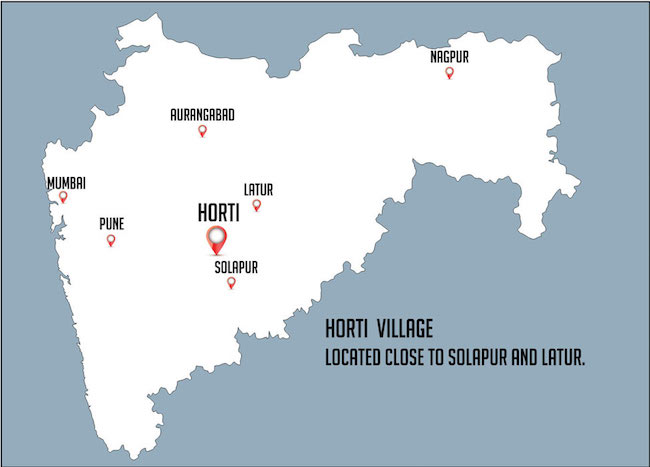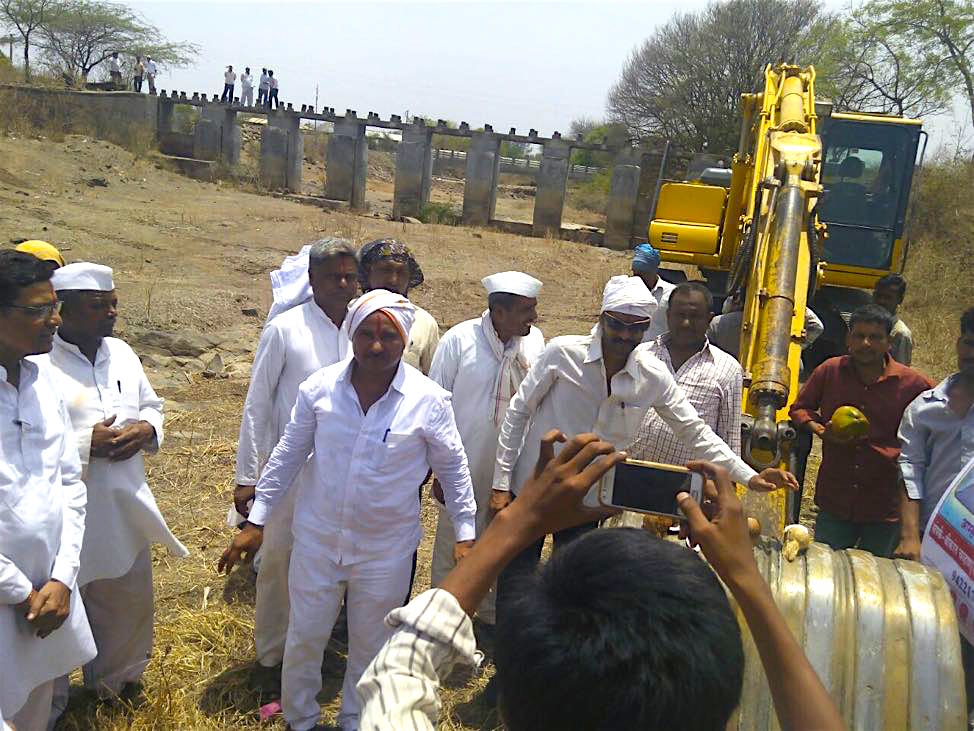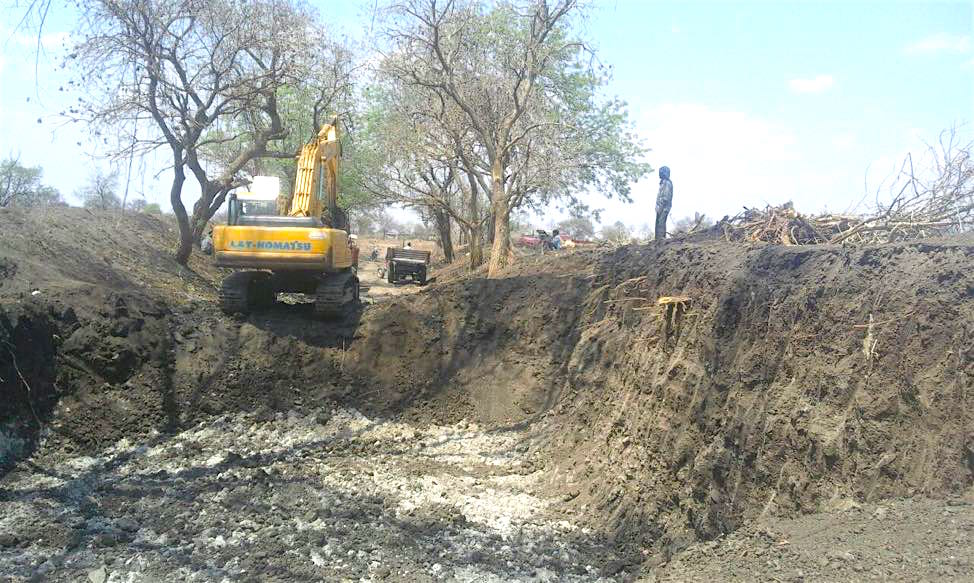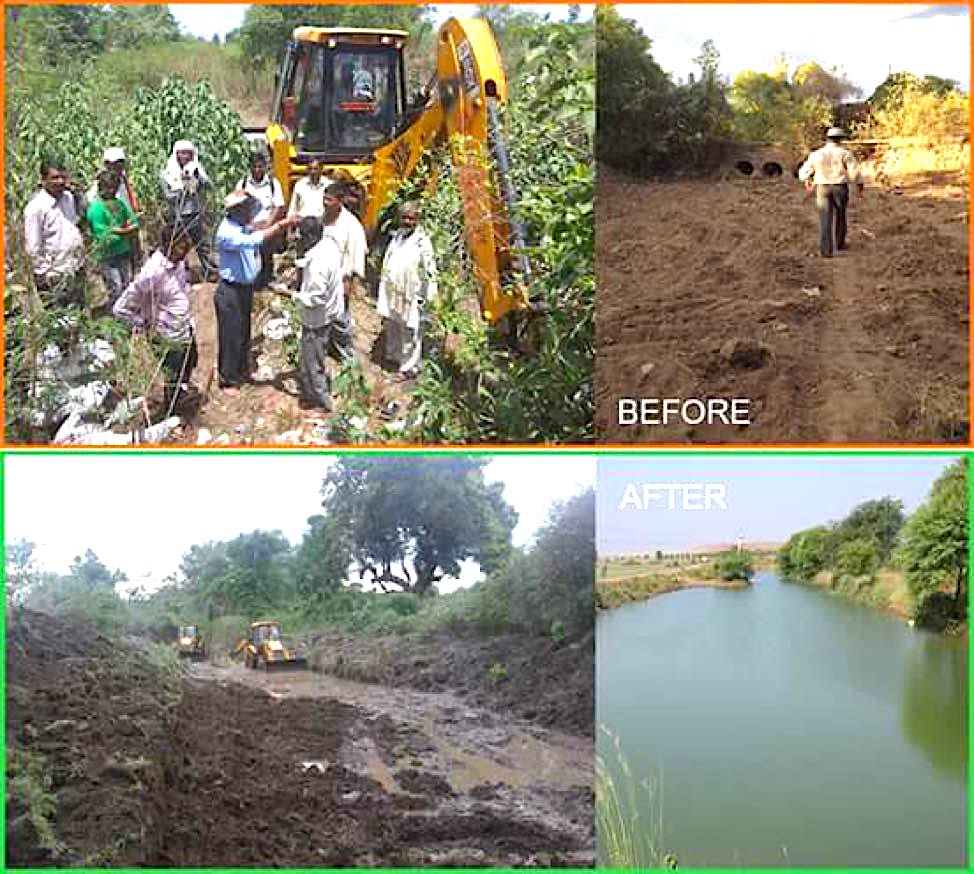
WE NEED YOUR HELP TO BUILD A 8KM CANAL IN 15 DAYS TO BENEFIT 700 FARMERS IN THIS DROUGHT HIT VILLAGE
BACKDROP:
Farmers in the Marathwada & Vidarbha region of Maharashtra are reeling from a drought of unparalleled magnitude. The rains will come soon BUT the farmers will end up in a similar situation like today’s UNLESS they have a way to store the run off water from the rains!
SO WHAT DO WE DO?
ACTION PLAN:
The Suryoday Parivar plans to build mini canals, which act as reservoirs for water for drought hit village . Gearing them to harvest rainwater from the monsoons. We are targeting specific villages so that farmers in that village have water long after the rains have ended. We need your funding to make this a reality. The first project is in a small village called HORTI in the Osmanabad district of Maharashtra! This is an inspired initiative from Sadguru Shri Bhaiyyuji Maharaj.
This is a collaborative effort with the farmers pitching in & contributing 50% of the total cost of the project .So off the 6L required only 3 L needs to be crowdfunded while the balance will come from the 700 odd farmers .
(SEE MAP BELOW)

PROJECT PARTICULARS:
Name of the Village – Horti, Osmanabad District
Length of the Canal being constructed – 8kms
Time taken for construction – 300hrs
Farmers Impacted – 700
Individuals impacted – 3200
Cost of project for crowdfunding – ONLY 3 Lakhs.
THE TOTAL PROJECT COST IS 6 LAKHS, OF WHICH 3 LAKHS IS THE CONTRIBUTION FROM 700 FARMERS OF HORTI VILLAGE.

CANAL DIMENSIONS:
These canals are about 15 feet deep & 60 feet wide & are built to store water in such a way that farmers who have fields on either side of this canal can draw water from them. 3 L works out to a 500 INR amount per farmer!
Imagine just a 500 INR contribution from you will benefit a farmer & his entire family!
PLUS the soil dredged to make the canal is used to fertile soil in the fields & greatly enhances yield.

THE CORE OBJECTIVE:
Our country is an agricultural country. Approximately 50% of the population of India is employed in the agriculture sector each of them are indirectly linked to each other | 16.1% of the India’s GDP is generated by the agriculture sector. Most parts of the nation do not have adequate water systems to support agriculture. This is having a direct impact on the farming community. As a result of low rainfalls over the past few decades, water tables are drastically reducing where wells and streams have dried up. Modern lifestyle leading to ecological imbalance is the primary reason for untimely and low rainfalls. Water is the lifeline of all forms of life on earth , conservation of water is no longer just a need but an alarming necessity of the hour. Suryoday Parivar led by Sadguru Shri Bayyuji Maharaj , is making efforts to conserve water through rainwater harvesting, construction, deepening of ponds and construction of canal heads.

OUR MISSION:
Suryoday is committed to the promotion and protection of natural water bodies. Also with construction and deepening of the canals there has been an increase in the water tables in villages of Maharashtra and Madhya Pradesh. Through the various awareness camps effort are being made to emphasize the importance of conserving and preserving water and how it could better the ecology and the society as a whole.
OUR ACHIEVEMENTS:
Under this scheme many ponds and canals have been constructed in Aurangabad and the Osmanabad districts. Suryoday has strived successfully towards the deepening of the Old Shivkalin Ponds. Also, the fertile soil from the dredging of the ponds & from creating canals is distributed among the farmers, which help them increase their yield and productivity.
The picture below is of one of our successful canal projects in Village Murta, Osmanabad district.

Risks and challenges
* Farmers need to fund 50% of the project cost .However given the current conditions they may find it difficult to give the full amount in some cases . Any such shortfalls from the farmers will be taken care of by Suryoday Parivar.
* Suryoday Parivar is working round the clock to make these initiatives successful. However, people need to change lifestyles and ideologies - especially our behavior towards natural resources. The biggest challenge is to bring about a shift in societal thinking and beliefs.


